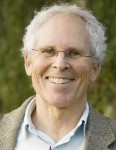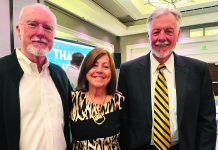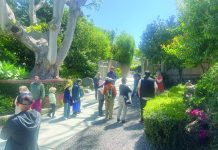Climate Change: Cities Must Take the Lead

Shortly after the White House announced on June 1 that the United States would withdraw from the Paris climate agreement did Congress fly into action to abate global warming? No. Did the Environmental Protection Agency double down on defending us from climate change? Again, no. At the federal level, it seems only the Pentagon continues to warn Americans that a hotter planet is a “multiplier” of conditions destabilizing international order through mass migrations, the spread of disease vectors and war. But the U.S. military, given its mission, has little if any role in shaping governmental policy aimed at preventing, slowing, or adapting to an environmental threat. Like the proverbial falling of a ton of bricks, those responsibilities have landed squarely on our states and even more so our cities.
That was the case 10 years ago during the George W. Bush era, and it is even more so today. While former Gov. Arnold Schwarzenegger and Jerry Brown today are rightly credited for their leadership in combatting climate change, our cities are our front lines protectors. Cities, through their climate action plans and other measures, implement policies. Realizing this, and in the wake of Trump’s rejection of the Paris accord, former New York mayor Michael Bloomberg and former Sierra Club executive director Carl Pope coauthored “Climate of Hope: How Cities, Businesses, and Citizens Can Save the Planet” (2017). They note that cities “account for about 70 percent of greenhouse gas emissions. . . . As the primary drivers of climate change, cities must take the lead in tackling it.”
Under Mayor Toni Iseman, our city, to its credit, seems to be doing just that. She arranged for an agenda bill to be heard Aug. 8 that will eventuate in a staff report on the Paris agreement and an update on implementation of Laguna Beach’s 2009 Climate Protection Action Plan. As a member of the city-sponsored work group that wrote the plan, I think its overall targeted goal of reducing GHG emissions to 1990 levels by 2012 was good five years ago but is now dated. Ditto for some of the other metrics and milestones we listed in discrete areas such as transportation, energy industry (electricity), residential, and manufacturing and construction. At any rate, we will doubtlessly learn much from what our city officials report.
Also, those same city officials will learn much from what Laguna’s citizens have to say in public comment. At least two citizens’ groups have formed to consider actions our residents, businesses, civic groups, and City Hall can take collaboratively to optimize our town’s response to accelerating climate change. Members of these citizens’ groups are concerned about projected sea level rise, sand and cliff-base erosion, degradation of marine habitat (think kelp beds) due largely to warming waters, and severe storms that threaten downtown flooding. These are likely the major local impacts of a climate peril global in scope.
One of the local actions I would favor and a fair number of Laguna residents may propose at that upcoming Council meeting could be a request for our city to sign on to the national Climate Mayors network, a coalition of more than 350 mayors, plus corporate leaders, state governors, and college/university presidents—more than 1,200 such officials so far. Doing so would mean that our city government endorses the Climate Mayors’ pledge to abide by the Paris climate accord, which aims to prevent warming more than 2 degrees Celsius (about 3.6 degrees Fahrenheit), thought by many scientists to be the threshold for avoiding the most catastrophic consequences of a planet getting hotter by the year.
With so much on the line for our coastal town and the next generations of Lagunans, and given the unlikelihood of meaningful federal action, come to the Aug. 8 council meeting and help all of us get a clearer sense of what more we and our city can do together to lead in the effort of combatting climate change.
Tom Osborne is a retired college history professor and writer.




